
Stronger grip, stronger heart
Your handshake is about more than your personality. Better grip strength is indicative of your circulatory health, reports a 2018 study in PLOS ONE. A stronger shake was associated with heart functioning and less heart “remodeling,” a process that happens when the heart is stressed.

Weaker grip, shorter life
In a study on more than a half million men and women in mid-life, those who had a limp grip had a 20 percent higher risk of death from heart and respiratory diseases and cancer, reported U.K. research in the journal BMJ. Hand strength may be a marker of muscle tone in your limbs and even be associated with your overall nutrition, the researchers say.

Better grip, better brain
The links between hand strength and your health continue: It may also reveal your cognitive abilities. In a 2018 study, people who had a more solid grip also had a more robust working memory and could problem-solve faster. Find out what your handshake reveals about your personality.
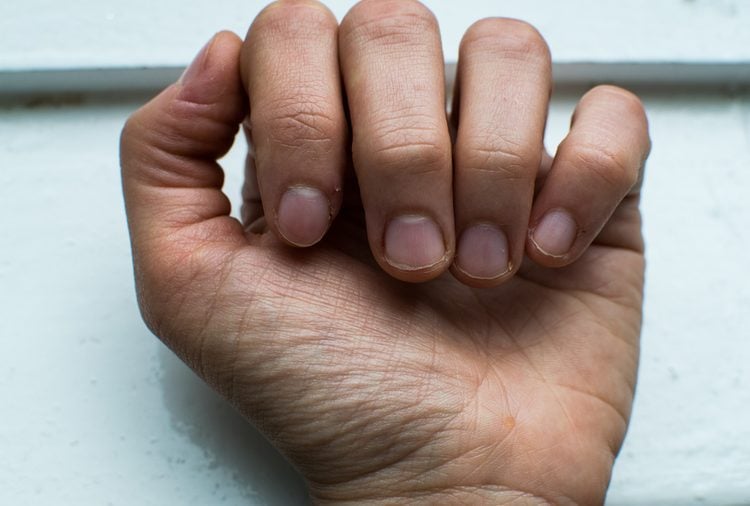
Enlarged fingertips may be a respiratory disease
Abnormal growth in your fingertips should put you on alert. It’s called “nail clubbing.” “This is an increase in the tissue around the ends of the fingers where the nail curves,” explains New York dermatologist Debra Jaliman, MD, author of Skin Rules. The cause? Low oxygen in the blood, something that may indicate lung disease, she says.
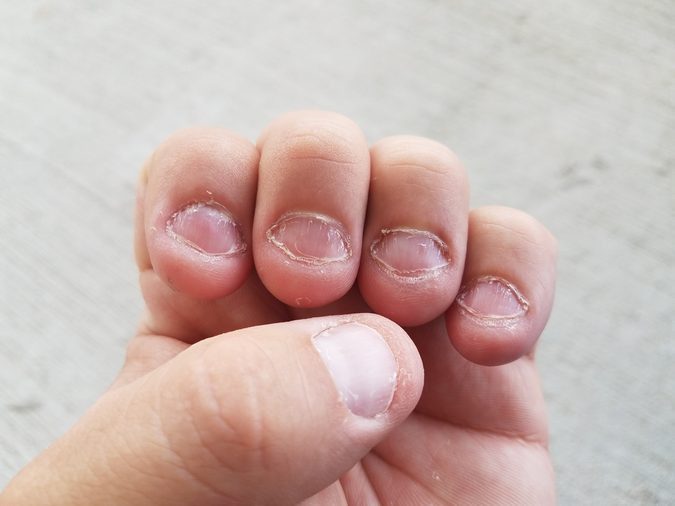
Nail biting may point to OCD
It may be more than just a bad habit. If your nails are bitten down to the stubs (and even bleeding), you may need to seek professional help. Biting your nails may feel uncontrollable, and it may be one symptom on the spectrum of obsessive-compulsive disorders. Treatments can range from applying a bitter-tasting compound onto nails to break the urge to psychiatric medications, says Dr. Jaliman. Check out these things dermatologists refuse to put on their hands.
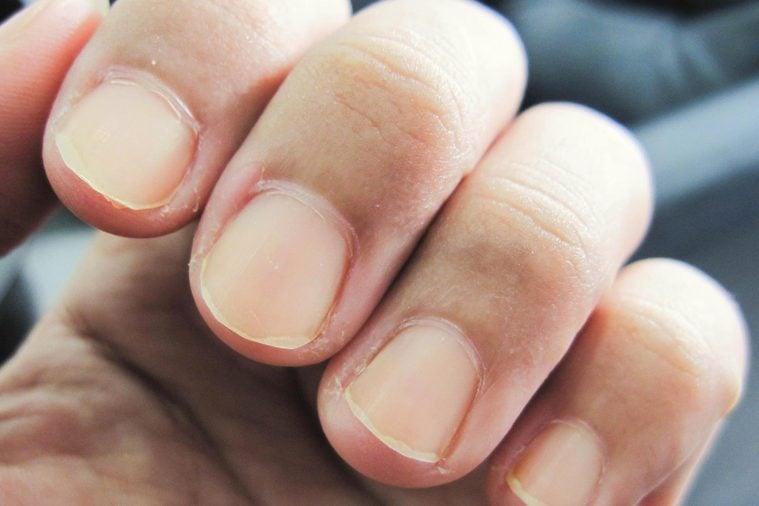
Color changing nails may be a thyroid condition
If nails look like they’re lifting up from the nail bed and are turning a color you know they shouldn’t—white, green, or yellow—talk to your doctor. Called onycholysis, it may be due to a recent bacterial or fungal nail infection, or it could signal an underlying health issue such as thyroid disease, says Dr. Jaliman. (Find out what it means if you have white spots on your nails.)

Very thin nails may be anemia
Iron is an important nutrient that keeps your energy levels up and plays a role in nail growth. Common conditions like heavy periods, pregnancy, a diet lacking in iron, or ulcers can all lead to iron-deficiency anemia. Fatigue is one symptom, but also take a look at your fingers: Spoon nails—a very thin nail that becomes concave in shape—is another sign of iron-deficiency anemia, says Dr. Jaliman. Iron supplements should help them grow stronger. Use these 14 tips to keep your nails healthy and gorgeous.
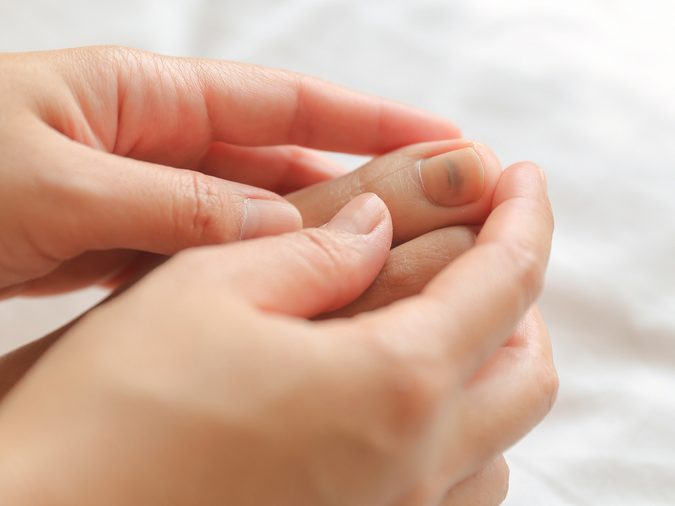
A dark line on your nail may be melanoma
You may watch for skin cancer on your skin—here’s how to check yourself—but not even think about your nails. Melanoma, a deadly form of skin cancer, can appear under your nails. Look for a black spot on the nail bed or a dark-colored linear line, says Dr. Jaliman. “It’s possibly indicative of a melanoma,” she says. Another sign: an indentation on the nail or bump at the edge of the cuticle, which shows that something is distorting nail growth. Your doctor may recommend a biopsy.
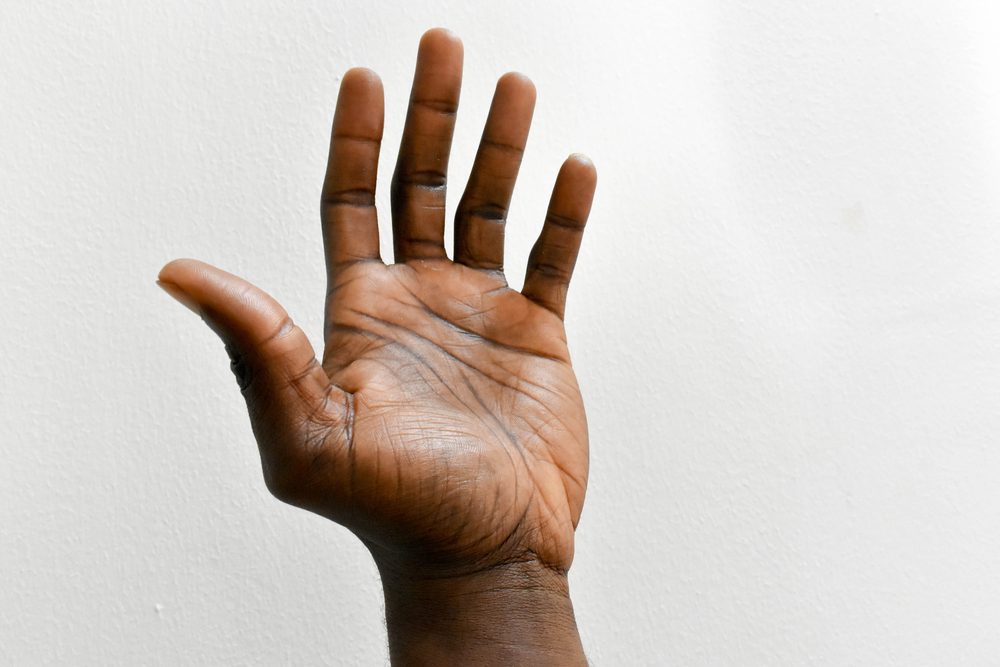
A long index finger, lower cancer risk
Your index and ring finger can tell you a lot about your health destiny; it’s something that’s determined based on exposure to sex hormones testosterone and estrogen in utero. And those exposures can predispose—or protect—you from a host of diseases, including prostate cancer risk. Research indicates that men who have an index finger longer than their ring finger have a 33 percent lower risk of prostate cancer. Don’t miss these 10 ways you’re washing your hands wrong.
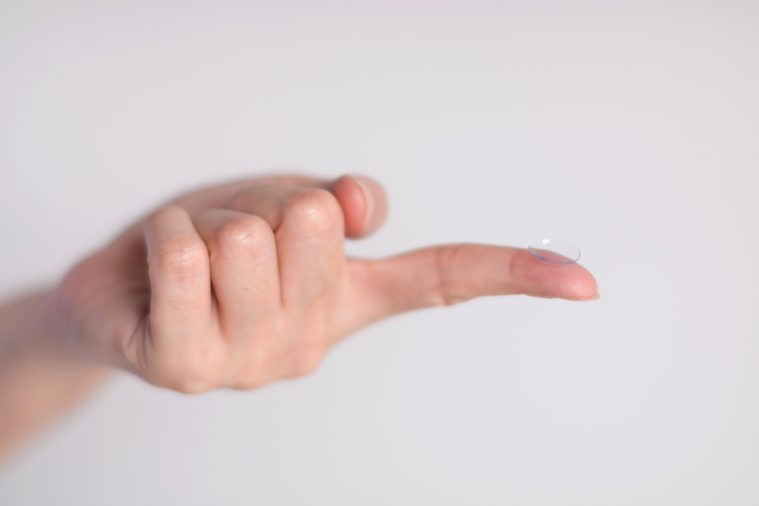
A long index finger, higher risk of heart disease
On the flip side, men who had coronary artery disease were more likely to have a longer index finger compared to their ring finger, notes a study on Chinese men and women published in the International Journal of Medical Sciences. It’s not the first study to show the correlation, either. Here are 6 more surprising diseases your hands may predict.
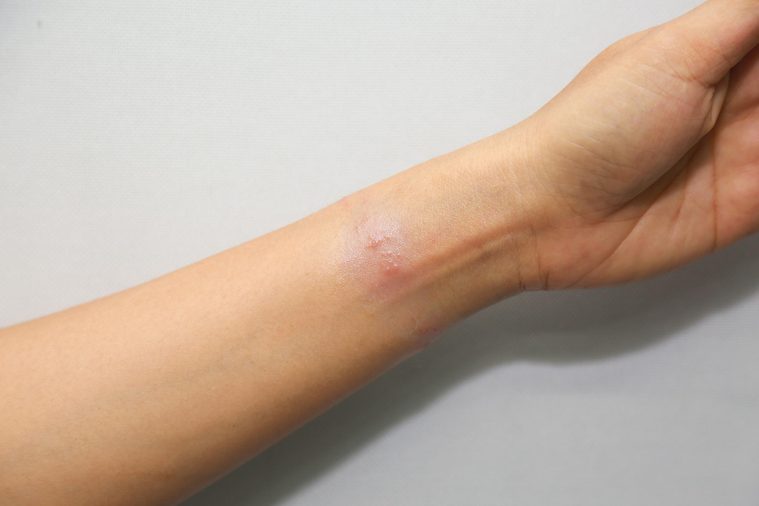
A purple rash along wrists may be an immune reaction
Purplish, itchy bumps around the wrist may be an inflammatory condition known as lichen planus, says Dr. Jaliman. Though it may look like a contagious rash, it’s not. Most common in middle-aged adults, the condition can be triggered by the flu vaccine, prescription medications (like those used for high blood pressure or arthritis), or over-the-counter painkillers, according to the Mayo Clinic.

When to seek help
Sometimes the cause of a nail problem is obvious. You may have caught it in a door (ouch!) or gotten a nail infection (ugh). But when the reason for your nail trouble isn’t clear, seek a professional opinion. Dr. Jaliman advises heading to the doctor if nail changes appear on most of the nails and if they appear suddenly. Next, learn the 9 health secrets your feet wish they could tell you.
